Fiona Hill: Trump’s impeachment nemesis on 2024, his Ivanka obsession and why the US is doomed
‘We’ve got an ongoing coup attempt against American democracy,’ former US national security official tells Eric Garcia

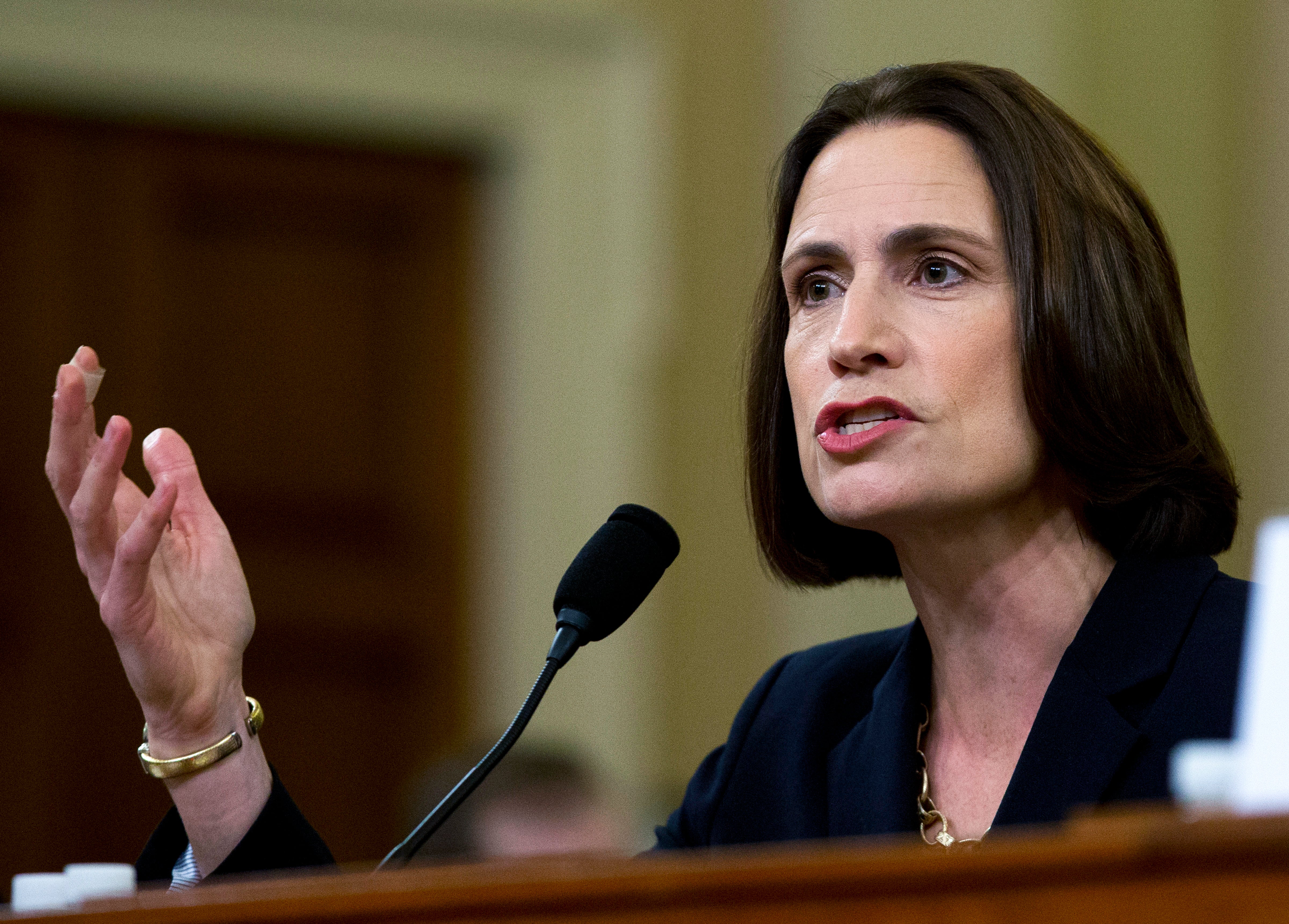
On 21 January 2017 Fiona Hill, a respected civil servant working at the revered Brookings Institution, joined the sea of pink beanies marching down the Mall at the National Women’s March.
A day after Donald Trump’s sparsely-attended inauguration, the crowd of more than 400,000 held aloft signs with slogans like “Free Melania”, “Orange is the New Whack” and “Love Trumps Hate”.
Yet the very next day, Dr Hill, a published author and respected intelligence analyst under George W Bush and Barack Obama, was interviewed for a job with the very same president she protested against. Perhaps surprisingly, she took the job.
Nearly five years later, that inconsistency is not wasted on Dr Hill, who spoke to The Independent to mark the publication of her new book There Is Nothing for You Here: Finding Opportunity in the Twenty-First Century.
“The Woman’s March was sparked off by Trump’s misogyny and mistreatment and misrepresentation and disparaging remarks about women, but it was also of a much broader nature of the importance of women in society, and how there was so much marginalisation of women still going on, even in this late day and age, 100 years after women getting the vote,” she said.
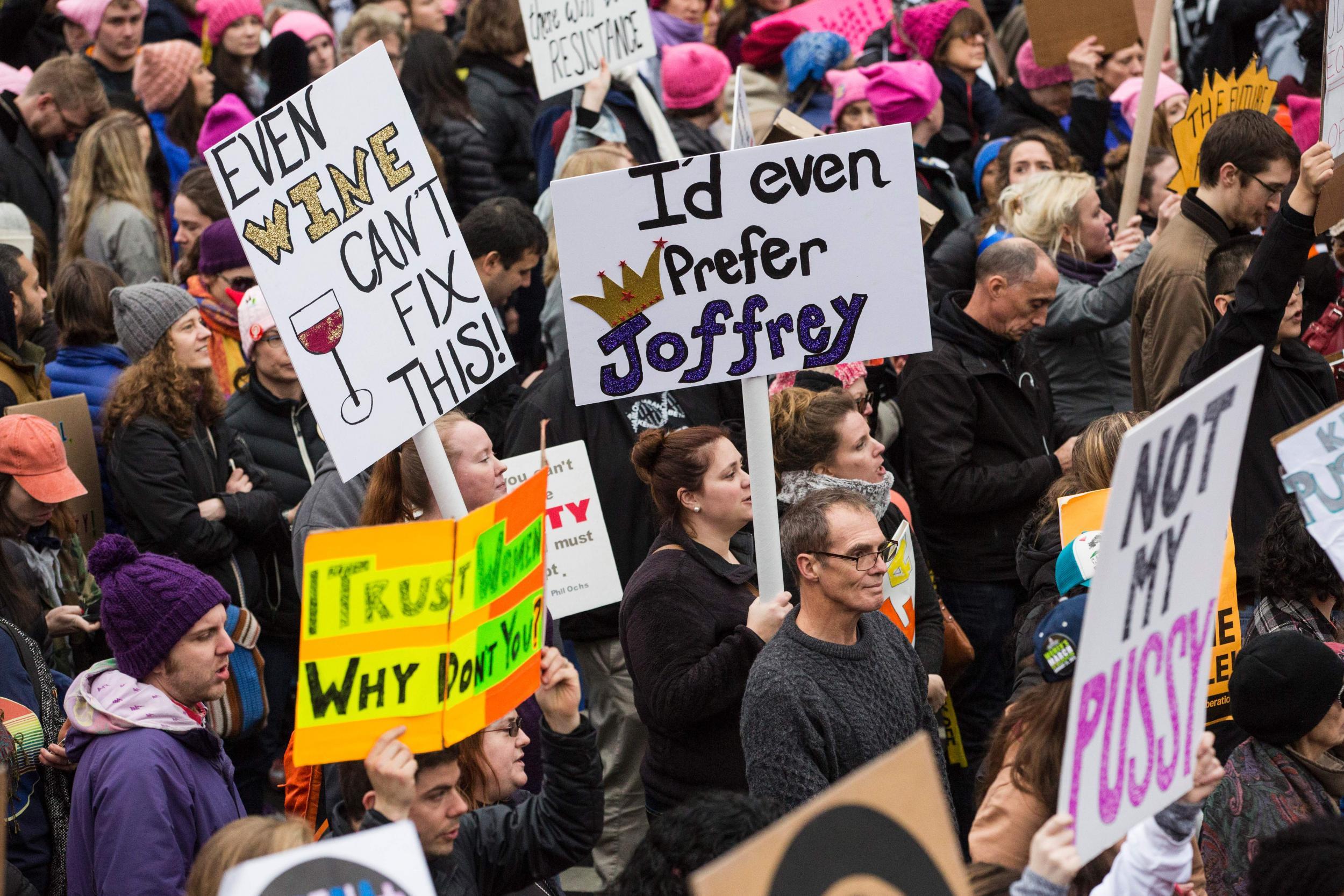
Driven by Russian meddling in the election and after being told by national security advisor Michael Flynn that she would be guiding Mr Trump’s handling of Vladimir Putin, Dr Hill – perhaps a bit naively – believed she could change the administration from the inside.
“I think this is actually part of the problem that we have now in the United States, is we’ve started to fetishise the presidency. We started to think about The Executive Branch and The Office of the President as one person. There was the larger issue there of national security, and I felt once I’d been asked to do something – I felt like I should.
“I was certainly determined that as a woman, and an immigrant, that I would still stand up for what I could when I was there but the national security imperative was the issue that drove me forward.”
It was an imperative that would come to an abrupt and explosive end.
Dr Hill had spent her career in DC gaining respect among her peers, but she earned international acclaim for her testimony before the House Intelligence Committee bringing impeachment charges against Mr Trump.
“Based on questions and statements I have heard, some of you on this committee appear to believe that Russia and its security services did not conduct a campaign against our country – and that perhaps, somehow, for some reason, Ukraine did,” she said. “This is a fictional narrative that has been perpetrated and propagated by the Russian security services themselves.”
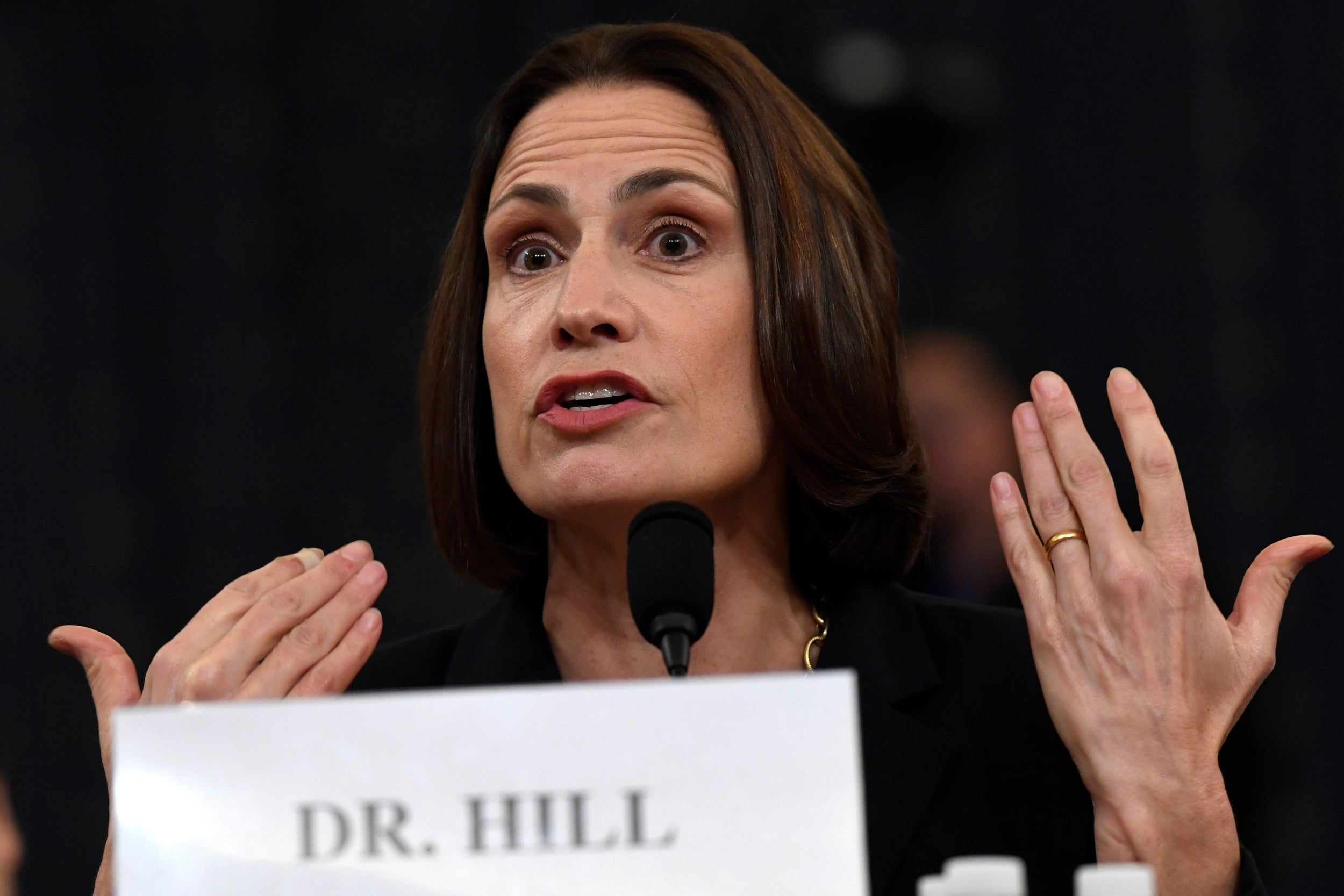
It was this unintimidated, straightforward speech delivered in her strong northern English accent that grabbed the world’s attention and made Dr Hill, temporarily, something of a household name.
The New Yorker called her testimony “extraordinary” and Roll Call said she “delivered perhaps the most forceful testimony countering the Republican defense of Trump and his dealings in Ukraine”.
But the response wasn’t all positive.
“I stopped answering my telephone, switched off the answering machine, got some security cameras,” she would later tell The Hill of her newfound fame. “I was advised to seal up the mail slot on my door to make sure nobody put a pipe bomb or a packet of powder through it.”
Dr Hill chronicles this journey in her new book, which is part memoir of her journey from working-class Bishop Auckland in England to the White House; part tell-all of her time working for an erratic president whom she considers a danger to democracy; part policy recommendations and part warning about the fragile state of democracy.
Throughout the book, she talks about her background, how even though her father quit working in the coal mines to become a hospital porter for 30 years, “he was once and for all a miner”.

That loss of purpose is what prompted him to tell his daughter to leave for London, Europe or the United States, warning: “There’s nothing for you here, pet.”
Dr Hill took that advice to heart, eventually graduating from the University of St Andrews, working in Russia and then coming stateside to pursue graduate studies at Harvard.
At the same time, though, her book doesn’t have the same inspirational tone of upward mobility. She writes about the impossibility of surpassing class-based biases in the United Kingdom, which prompted her to stay in America, while at the same time writing about her difficulty navigating the social structures within the States and eventually, the White House.
It was after her tour de force testimony at Mr Trump’s impeachment that she found herself subject to the British press who marveled her “improbable” ascent to the upper rungs of the White House, curiously, she notes, comparing her to Prime Minister Boris Johnson, despite him being the “the privileged and plummy-accented product of Eton and Oxford”.
This is England
While to many Americans, her story of coming up from an abandoned community to advising a president would be the material for inspiration, in her book, Dr Hill writes how the lack of opportunities meant she often missed important cues when trying to navigate the higher tiers of English society.
Unlike Mr Johnson, when she applied to Oxford, she writes how she took her entrance exam with no preparation that many elites might have had and how she tripped walking into her interview.
Ultimately she chose to attend St Andrews, but even then, struggled with money, which meant taking up serving jobs to make ends meet.
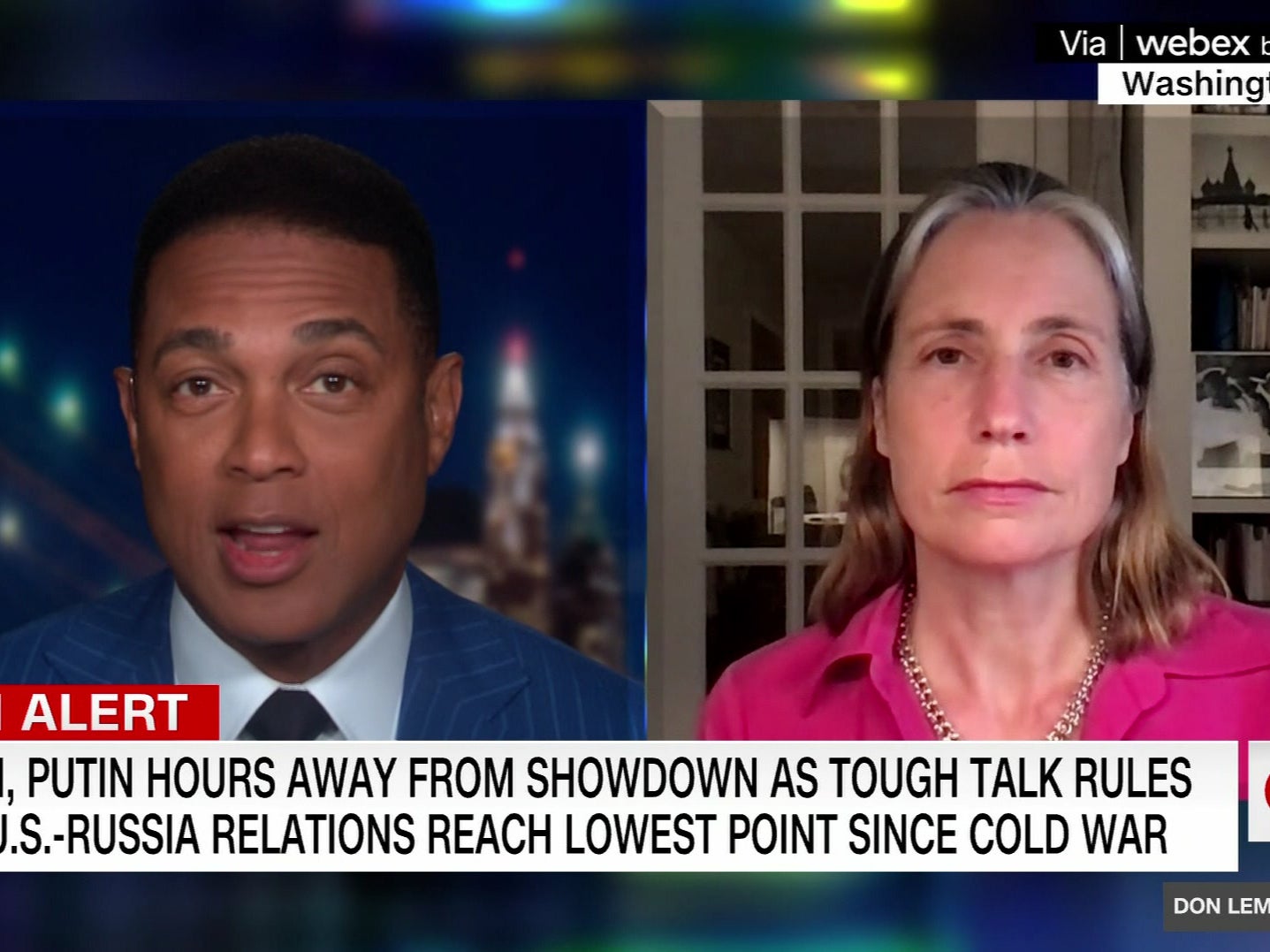
When she was a waitress at the St Andrews Royal and Ancient Golf Club, a man stuck his hand up her skirt, which led to her elbowing him. She was promptly fired.
“When I complained about what he had done, the bar manager offered to speak to the other places I worked in St Andrews to make sure I wouldn’t have another job in town,” she writes. “He would also deny it if I reported it to the university, which had no official connection to the golf club apart from proximity.”
Today, as a graduate of Harvard with an established career in the United States, Dr Hill is also worried about the lack of opportunities for people like her; she fears demagogues capitalise on lack of opportunity.
“I think that it’s too late to prevent it, because it’s already happened, right? It’s can we reverse it?” she said.
“It should not be that difficult for people to have access to education, and I mean, I think that that’s one of the key elements in pushing back against disinformation conspiracy theories, and also pushing back against polarisation. You’re thinking about the larger societal wellbeing and welfare.”
‘Hey, darlin’ are you listening?’
Dr Hill’s misgivings about Mr Trump’s treatment of women were, of course, ultimately founded.
Indeed, on her very first day the writing was on the wall, or perhaps under the armchairs.
Forgetting her dress shoes on the Metro, she wound up in sneakers in the Oval Office. She tried to brief the president but he paid her no attention and her attempt to hide her footwear was foiled by Mr Trump’s daughter Ivanka.
“[She] wafted into the room wearing an elaborately lacy two-piece white outfit and alarmingly high stiletto heels as if she were off to a gala. Ivanka sat down right beside me, immediately taking in my black sneakers, which I had failed to conceal under the chair, and flashing me a look of surprise. I was busted,” she writes.
When Dr Hill was introduced to Mr Trump as his new Russia advisor, he abruptly replied.
“Rex [Tillerson, Trump’s secretary of state) is ‘doing Russia’.”
Moreover, she later learned that White House chief of staff Reince Priebus and others denigrated her by calling her “the Russia bitch” in conversations with staff.
After a call between the president and Mr Putin and as administration officials prepared a press release of the talk, Mr Trump suggested Dr Hill type up the press release herself, asking “Hey, darlin’ are you listening? Are you paying attention?”.
While Mr Trump admired women like Kellyanne Conway, who ran his campaign, he dismissed other women who weren’t loyalists or who didn’t come from Fox News, Dr Hill explains.
“It’s very evident that he just dismissed women in particular, and in my experience, I mean, he looked at most women as secretaries, members of the staff,” she said.
Similarly, Dr Hill said that Mr Trump did not take too kindly to female leaders either, such as then-British prime minister Theresa May and German chancellor Angela Merkel.
“When their majorities dropped, he would then treat them differently. His ideal woman was Ivanka Trump because he saw Ivanka Trump as his female alter ego.
“I think he basically associated women generally with weakness,” she said. “He was then somewhat repelled by them.”
From Russia with love
Conversely, while Mr Trump saw female political leaders as losers, Dr Hill reveals how he deeply he admired Mr Putin.
“Everybody knows who Putin is, and that’s who Trump wants to be. He wants to be the person who everybody knows and the most powerful person in the world,” she says in a Zoom call from her home.
“[The Russians] knew how to manipulate him because he preferred strong men over even his own American counterparts.”
Part of that manipulation came in the form of a last-minute female interpreter that Mr Putin brought in ... as a means of distracting the president and flattering his ‘incredible, fragile ego’.

Despite what many people have said about Russia potentially having compromising information on the former president, Dr Hill has a more nuanced explanation.
“We all have something on Trump at this point. I mean, everyone’s been obsessed with the so-called pee tape, but we have the Access Hollywood tapes,” she said, referring to the tape released ahead of the 2016 presidential election that featured Mr Trump bragging about sexually assaulting women.
“I mean, we know that the man has done some pretty dreadful things, so I mean, in many respects, he’s a counterintelligence risk and open to blackmail from all kinds of people, right?”
As she writes in her book: “The president’s vanity and fragile self-esteem were a point of acute vulnerability.”
“He modeled himself off on the big, strong men, and Putin is one of them,” she continues.
“Trump, it’s all about being very rich, very powerful, respected and basically everyone knowing who he is. It’s very superficial, so for him, Putin epitomises this, because he’s the ultimate badass politician.”
And to fix this “Trump effect”, democracy needs a rethinking of our elected officials and what matters, she says.

“Our political algorithms are also now based on outrage, showmanship, basically getting people’s attention. That’s how Trump prevailed, because everybody else seemed boring, and he was really exciting and interesting. He was a celebrity businessman. Everybody knew him from The Apprentice, and in a way, he was clickbait.
“And Hillary Clinton would stand up in her pantsuit and drawl on about public policy, and Trump would just stand up there in his classic suit that everyone has seen him on television with his red tie and just say whatever, and people were entertained.”
This is why Dr Hill says Facebook is a “bigger threat” than Putin.
“People want to be entertained at the same time as they want to get information. And again you’re going to be more attracted, as we’ve learned from the Facebook algorithms, by outrage, by hate speech and the same in politics.
“It’s one thing to have the world’s biggest military and nuclear weapons but it’s incredibly cheap to maintain and very easy to use the internet. Hacking, ransomware attacks. But then the ability to hack the minds through basically the exploitation of social media is priceless. And I mean, the Russians had more impact through those kinds of actions than they would’ve had mobilising tanks on borders or overflights of long-range aircraft.”
The closest she came to quitting was at the joint Trump-Putin news conference in Helsinki, Finland, when Mr Trump backed his rival on Russian interference over his own intelligence agencies.
“I wanted to end the whole thing,” she writes in her book. “I contemplated throwing a fit or faking a seizure and hurling myself backward into the row of journalists behind me. But it would only have added to the humiliating spectacle.”
Democracy in peril
The similarities she sees in Mr Trump and Mr Putin aren’t limited to the influence of the former over the latter. Like Russia’s parliament she sees Republicans as being beholden to the autocratic impulses of the former president.
“What we’ve seen with Trump is that he got other people to do his dirty work in Congress,” she said. “I mean, he tried to have vice president Pence refuse to certify the electoral college votes, but he had Josh Hawley, Ted Cruz, all of the members of Congress in the House side. Basically, he pushed forward his repudiation of the election results in multiple states.”

It is here where Dr Hill sees parallels between the United States and Russia, which she calls the “ghost of Christmas future” for American democracy. She notes how it was a member of the Russian parliament, not Mr Putin, who facilitated changing restrictions on term limits to allow Mr Putin to stay in power until 2036.
“And so, I mean, they knew that this wasn’t true, but they continued,” she said, adding that many Republicans like House minority leader Kevin McCarthy and whip Steve Scalise have aided and abetted Mr Trump’s lies. “They’re rubber stamping, or basically approving of and enabling, Trump’s undermining of the US democratic system.”
Dr Hill believes Mr Trump will run again and the prospect of this is chilling – not only for politics but society as a whole.
“We’ve got an ongoing coup attempt against American democracy. It’s not against Joe Biden, or the president,” she said. “But it’s against America, an attempt to usurp power in the hands of a minority, and a charismatic kind of cult personality culture, around one person.”
“He said there is no Republican party, just the Republican party of Trump. He wants to get rid of any opposition, including within the Republican Party... He’s running on the basis of a lie... he’s the presumptive candidate of the Republican party, and nobody is repudiating that lie.
“I mean, basically it’s now a personality cult, and as we’ve seen around the world in historical settings, similar settings in history, but also internationally, that once this kind of lie is enabled and given credence to, and a particularly dominant personality is basically paid lip service to then that is often the end of democracy.
“They can’t see themselves as voting for anyone else. The whole of politics is like a video game, like Mortal Combat, and Trump is the avatar for them, and you’ve got to kill all of the enemies. Win, you can’t lose. They’re not thinking about the implications for the United States, and certainly not thinking about the vast majority of Americans who are not in that partisan game.
“The Republican Party has essentially disappeared. This is not a partisan statement, it’s just a flat observation, a fact. And that we really are in a crisis, and I think it takes all hands on deck to do something about it, and I just want to try to get other people to realise what’s happening and that we need to stand up, because this is that moment that we’ve all been raised for.”
Join our commenting forum
Join thought-provoking conversations, follow other Independent readers and see their replies
Comments
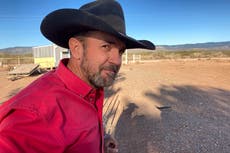


Bookmark popover
Removed from bookmarks